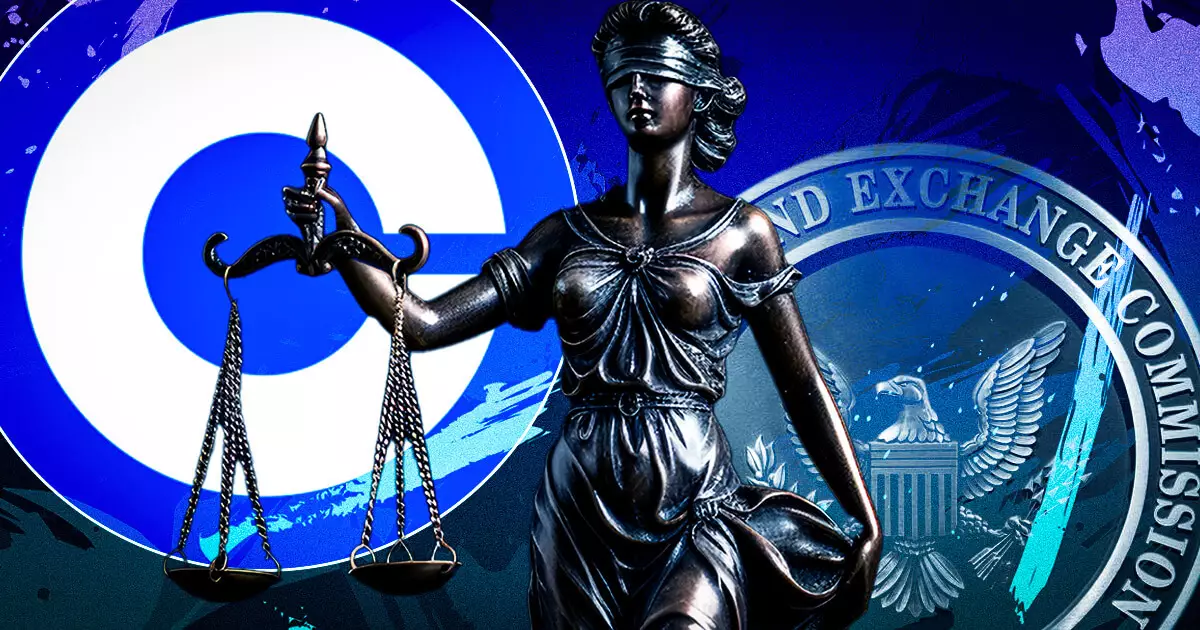The highly anticipated court hearing between Coinbase and the U.S. Securities and Exchange Commission (SEC) on January 17, 2023, shed light on the ongoing dispute over alleged securities violations. Originally, in June 2023, the SEC accused Coinbase of operating an unregistered national securities exchange, broker, and clearing agency. Additionally, the SEC raised concerns about Coinbase’s crypto staking service, claiming that it involved the unregistered sale and offering of securities. Although Judge Katherine Polk Failla refrained from delivering a ruling, her expressed concerns mirrored those of Coinbase.
A Question of Tokens
One particular area of contention during the hearing revolved around Coinbase’s provision of access to 13 crypto tokens while not issuing them directly. The SEC argued that these tokens qualify as investment contracts, citing their connection to a larger blockchain network. According to the SEC’s assistant chief litigation counsel, Patrick Costello, the value of each token increases as the underlying network or ecosystem grows. In this context, the SEC inferred that each token could potentially be classified as a security. However, Judge Failla raised doubts about the SEC’s argument, questioning its potential to “broaden the definition of what constitutes a security.”
Interestingly, companies behind popular cryptocurrencies such as Cardano (ADA), Solana (SOL), and Polygon (MATIC) have previously denied the securities classification of their assets. It is worth noting that these companies are not named as defendants in the SEC’s case against Coinbase. Their denial adds weight to the scrutiny over the SEC’s allegations and raises concerns about the agency’s interpretation of securities laws.
FOX Business reporter Eleanor Terrett provided additional insights from the hearing, highlighting Judge Failla’s reference to Senator Cynthia Lummis in questioning the SEC’s case. Senator Lummis, known for her involvement in the cryptocurrency space, voiced support for the dismissal of the case. Judge Failla emphasized Lummis’s credibility by stating that she is “not just a random Senator” but is “deeply involved in the space.” The judge further alluded to Lummis’s belief that securities laws may be outdated, suggesting that a dismissal might be warranted.
During the closing arguments, the SEC argued against Coinbase’s application of the Howey Test from 1934, dismantling any possibility of an “easy workaround.” Coinbase fired back by claiming that the SEC failed to demonstrate any contractual relationship between token issuers and Coinbase customers. Coinbase’s legal team criticized the SEC’s complaint, calling it an attempt to twist statutory language and requesting a full dismissal of the case.
A Ruling Delayed
Despite Judge Failla’s critical stance towards the SEC, she refrained from issuing a ruling on the day of the hearing. She urged both parties to consider the lack of decision as a “compliment,” indicating that each side presented valid arguments. This delay prolongs the uncertainty surrounding the outcome of the case and leaves the cryptocurrency community eagerly awaiting further developments.
The Coinbase vs. SEC court hearing showcased the clash between the world of cryptocurrencies and traditional securities regulations. Judge Failla’s critical remarks towards the SEC’s definition of securities raised questions about the agency’s broader intent. The denial of securities status by prominent companies in the industry further emphasized these concerns. With Senator Cynthia Lummis’s support for a dismissal and Coinbase’s strong response to the SEC’s allegations, the court hearing demonstrated the complexity of applying outdated securities laws to rapidly evolving digital assets. As the case unfolds, the implications for the future regulation of cryptocurrencies and the legitimacy of token offerings hang in the balance.


Leave a Reply